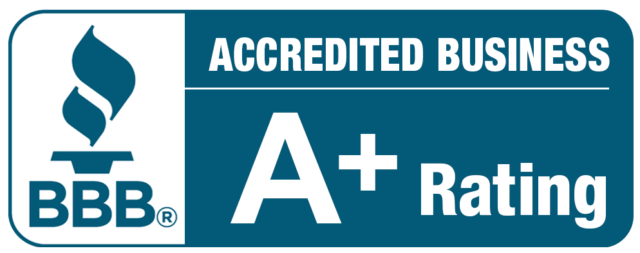Are you a home care-trained professional that has been faced with difficult clients and wondering how you can handle them?
Handling difficult clients is a challenging yet essential task for any professional in a client-facing role. Dealing with unhappy, frustrated, or demanding clients requires a combination of empathy, patience, and problem-solving skills. It’s important to remember that even the most difficult clients are valuable, and providing exceptional service can turn a negative experience into a positive one.
In today’s global economy, effective communication skills are more important than ever before. The ability to communicate effectively can make or break a career, a business, or a relationship. As the world becomes increasingly connected, professionals need to be able to communicate with people from diverse backgrounds, cultures, and perspectives. This requires not only a mastery of language, but also an understanding of non-verbal communication, cultural norms, and emotional intelligence.
In this article, we will explore strategies for handling difficult clients with care and professionalism. We will examine and provide practical tips for de-escalating tense situations, setting clear boundaries and expectations, and offering solutions to meet clients’ needs. By mastering these skills, professionals can not only improve their relationships with clients but also enhance their career success and organizational performance.
Common Types Of Difficult Clients And How You Can Handle Them Effectively
Difficult clients can cut across a variety of different people and different reactions and problems that made them to be categorised as “difficult.”
Some common types of difficult clients include
- Angry clients
- Indecisive clients.
- Demanding clients.
- Non-responsive clients.
- Clients who refused to give a brief.
How To Handle Difficult Clients With Care And Professionalism
Dealing with difficult clients can be one of the biggest challenges faced by professionals in any industry. It requires tact, patience, and empathy to navigate through these situations and come out with a positive outcome. Here are some strategies and best practices for handling difficult clients with care and professionalism:
1. Listen actively and empathize
When dealing with a difficult client, it is important to listen actively and empathize with their concerns. This means giving them your full attention, acknowledging their feelings, and showing that you understand where they are coming from. According to a survey by HubSpot, 93% of customers are more likely to be satisfied with their experience if the company they are dealing with demonstrates empathy.
By actively listening to a client, you can demonstrate empathy, build trust, and identify underlying issues that may be contributing to the difficulty. According to a study by Harvard Business Review, customers who feel listened to are 4 times more likely to recommend the company to others, and 3 times more likely to continue doing business with the company.
Active listening also allows professionals to clarify misunderstandings, identify potential solutions, and de-escalate tense situations. Overall, active listening is a crucial component of successful client management and should be a priority for any professional working in a client-facing role.
2. Stay calm and professional
To handle difficult clients, you have to remain calm and professional. It can be easy to get caught up in the emotions of a difficult client, but it is important to stay calm and professional at all times. According to a study by the Society for Human Resource Management, 58% of employees say that staying calm and professional in difficult situations is one of the most important traits for a successful customer service representative.
3. Set clear boundaries and expectations
Difficult clients may try to push boundaries or make unreasonable demands, so it is important to set clear boundaries and expectations from the outset. This includes establishing clear timelines, explaining what is and isn’t included in your services, and outlining any potential limitations or risks. According to a survey by Zendesk, 87% of customers say that being provided with clear expectations is very important to their overall customer experience.
4. To Handle Difficult Clients, Offer Solutions, Not Just Apologies
While it is important to acknowledge and apologize for any mistakes or shortcomings, it is equally important to offer solutions to the client’s problems. This could involve providing additional resources or support, offering a discount or refund, or finding a creative solution that meets the client’s needs. According to a study by the Harvard Business Review, customers are 50% more likely to make a repeat purchase if you resolve their complaints to their satisfaction.
5. Follow Up And Check-in
After dealing with a difficult client, it is important to follow up and check in to ensure that they are satisfied with the outcome. This shows that you value their business and are committed to providing excellent service, even in challenging situations. According to a survey by Bain & Company, customers who have a positive experience with a company are 6 times more likely to recommend it to others than those who have a negative experience.
In conclusion, dealing with difficult clients requires a combination of skills and strategies that prioritize empathy, professionalism, and problem-solving. By listening actively, staying calm, setting clear boundaries and expectations, offering solutions, and following up, professionals can turn difficult situations into positive outcomes and build stronger relationships with their clients. According to a survey by Salesforce, 73% of customers say that a great customer experience is key to their loyalty, so investing in these skills is essential for long-term success.
How Do I Maintain Professionalism When Dealing With A Difficult Client Who Is being Rude or Aggressive?
When dealing with a rude or aggressive client, it’s important to stay calm and composed. Avoid getting defensive or escalating the situation. Listen actively to their complaints and concerns, and respond in a professional, respectful manner. If necessary, take a break to cool down before continuing the conversation.
What are some strategies for setting clear boundaries and expectations with difficult clients?
Setting clear boundaries and expectations with difficult clients is essential for maintaining a professional relationship. Be clear about what you can and cannot do, and set realistic timelines and goals. Communicate any changes or updates promptly and clearly. Document all interactions with the client for reference.
How can I empathize with a difficult client without agreeing with their complaints or demands?
Empathy is crucial when dealing with difficult clients, as it helps to build trust and rapport. However, it’s possible to be empathetic without agreeing with their complaints or demands. Acknowledge their feelings and perspective, but also explain your own position and offer alternative solutions.
What are some effective techniques for de-escalating a tense situation with a difficult client?
De-escalating a tense situation with a difficult client requires a combination of communication and problem-solving skills. Here are some effective techniques:
- Stay calm and maintain a professional demeanor.
- Listen actively and empathetically
- Use positive body language
- Focus on finding a solution
- Offer alternatives.





One comment
Pingback: The Importance Of Active Listening In Client Care
Comments are closed.